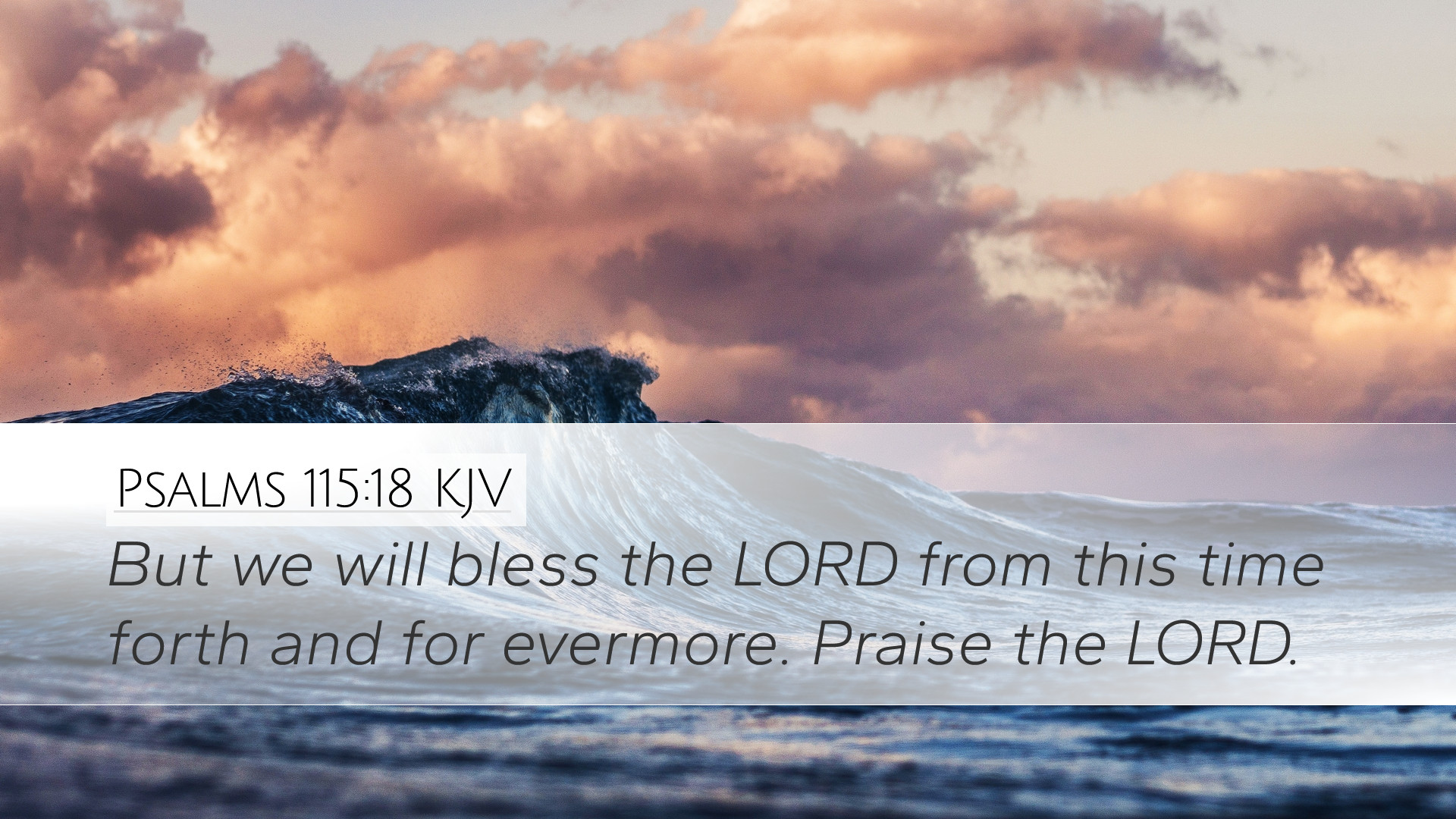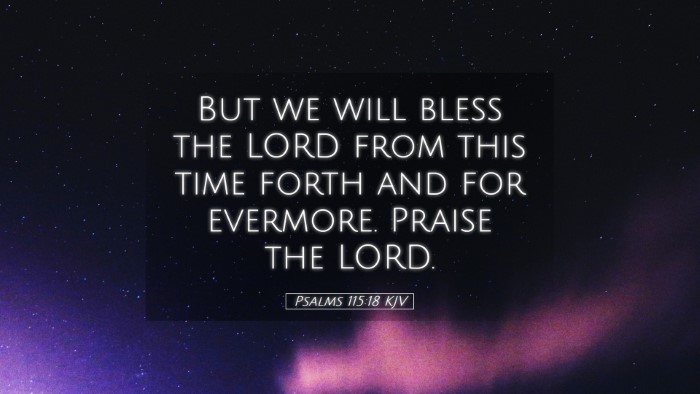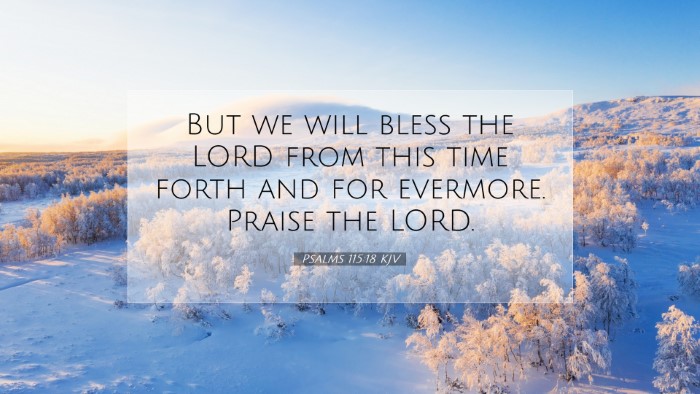Psalms 115:18 - Commentary and Insights
Verse Text: "But we will bless the LORD from this time forth and forevermore. Praise the LORD!" (Psalms 115:18, ESV)
Introduction
This verse is often viewed as a declaration of praise and a commitment to worship, set against the backdrop of the psalmist's reflection on the worthlessness of idols compared to the living God. As we delve into this verse, we will draw insights from respected public domain commentaries, including those by Matthew Henry, Albert Barnes, and Adam Clarke, to provide a comprehensive understanding of its theological implications and practical applications for today's believers.
The Context of Psalm 115
Psalms 115 addresses the theme of the futility of idolatry and the sovereignty of God. The psalmist contrasts the impotent idols made by hands with the living God who is alive and active in the lives of His people. This context highlights the significance of verse 18, as it serves as a response to the previous discussions regarding the nature of God versus the nature of idols.
Analysis of Key Components
- Commitment to Blessing the LORD: The phrase "we will bless the LORD" signifies an active choice to acknowledge and celebrate God's goodness. Matthew Henry notes that to bless the Lord is to recognize His majesty and supreme authority in all aspects of life.
- Temporal to Eternal Praise: The mention of "from this time forth and forevermore" emphasizes an everlasting commitment. Albert Barnes highlights that true worship should not be confined to specific moments of worship or seasons but should be a continual act of life dedicated to the Creator.
- Call to Action: The imperative "Praise the LORD!" serves as both a personal commitment and an exhortation to the community. Adam Clarke expounds on this by suggesting that the communal aspect of worship is vital, reinforcing that the call to praise should resonate within the congregation as an invitation to collective worship.
Theological Reflections
- God’s Sovereignty: This verse underlines the sovereignty of God over all creation. The psalmist recognizes that human praise is directly linked to God's awareness and responsiveness to His people. His commitment to bless the Lord stems from an understanding of God’s omnipotence and faithfulness.
- The Nature of True Worship: Worship is not merely about rituals or symbolic gestures; it is a heartfelt response to God’s revelation of Himself. In light of this, both Henry and Clarke point out that worship should permeate every part of our lives, stemming from a deep and abiding relationship with God.
- The Endurance of Worship: The phrase "forevermore" serves to remind believers that worship is also eschatological. It is a vision of eternal fellowship with God, serving as motivation for enduring trials and tribulations, uplifting the soul towards hope and joy in His presence.
Practical Applications for Believers
- Consistency in Worship: This verse calls believers to a lifestyle of consistent worship and praise, both in individual and communal settings. Churches and congregations should foster environments that encourage ongoing worship beyond the walls of the church building.
- Daily Remembrance: Believers are encouraged to cultivate a daily remembrance of God's faithfulness and blessings. Their lives should reflect a continuous attitude of gratitude, echoing the sentiment of the psalmist in verse 18.
- Inviting Others to Praise: The exclamatory nature of "Praise the LORD!" suggests an evangelistic dimension. The church is challenged to invite others into this cycle of worship, proclaiming the goodness of God to friends, family, and community.
Conclusion
Psalms 115:18 encapsulates a profound and timeless call to worship that resonates through the ages. By understanding the significance of blessing the Lord continuously, believers are reminded of their identity and calling as worshipers. With insights from commentaries from respected theologians, this verse becomes not only a declaration of praise but a blueprint for a life wholly devoted to glorifying God.


